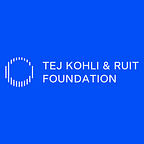Gender Equality In Sight | #LoveYourEyes
Across the world, women make up 64.5% of the cataract population. Over the last few years research have shown that men in some developing nation are 46% more likely to receive sight-restoring surgery compared to their female counterparts.
According to the Royal National Institute of Blind People, one out of four women is at risk of sight loss, a much higher amount compared to a lower one in eight men being at risk.
Cataracts make up for around 40% of blindness across the globe, closely followed by refractive errors and glaucoma. The trauma caused to the eyes from glaucoma can cause permanent damage to the eyes and cannot be reversed. However, cataracts and refractive errors can be reversed and sight can be restored with the correct treatment and prevention.
In the Lancet Global Health 2020, it was stated that around 596 million people were receiving some form of visual aid, the most prevalent being glasses or contact lenses. On top of this, another 510 million people suffer from untreated vision issues, with 90% of those living in low and middle-income nations.
There are a significant number of reasons why the amount of blind women is much higher than men. There seems to be a major lack of accessibility to healthcare in developing nations. Living in rural or isolated areas can lead to a complete disconnect from the world causing extreme difficulties in travelling to hospitals.
Although it is a major contributing factor, access to healthcare is not the only issue that causes women to suffer from blindness at a higher rate than men. A review from the Journal of Ophthalmology states that socioeconomic and cultural standards play a significant role in the treatment of eye care for females.
It has been stated that 4 out of 5 women continue to live a life of needless blindness due to the issue of being treated as second-class citizens. This is evident in research of families investing in the cure of a man with blindness instead of the woman. In addition to this, when a family member becomes blind, the duty of care falls upon the females in the household. This can lead to them becoming disenfranchised from work or education.
The idea of a woman travelling outside of her village alone to seek medical attention is almost unheard of. Women do not have access to the money to pay for transport to travel to hospitals. Some women also have many responsibilities tied to them within their homes and communities preventing them from leaving the village to care for their families.
Another element that plays a part in women receiving treatment for their loss of vision is education. A study has shown that illiteracy rates are significantly higher in women in low-income nations in South Asia. Typically, in these countries, women’s work tends to revolve around the home. Research in South India supports this as it shows literacy levels of the visually impaired individual and their family is a predictor of receiving cataract surgery.
Due to women having a higher chance of developing cataracts, experts are suggesting that more emphasis should be placed on curing female patients in developing countries in order to produce a more equal cataract surgical coverage. This is something that the Tej Kohli and Ruit Foundation has ensured occurs. Some suggestions have been made by officials from the World Health Organisation that may support the reduction of gender inequality in cataract surgery in low-income countries. Some of the suggestions include:
- Reducing the cost of surgery.
- Increasing flexibility of time patients needs to attend appointments.
- Reducing the need for family accompaniment.
- Providing transport.
- Holding educational outreach programmes.
Over time, with many organisations supporting those in need across the world, we will begin to see a change in the way everyone is treated in terms of eye care.
The Tej Kohli & Ruit Foundation was founded in March 2021 by London philanthropist Tej Kolhi and Kathmandu ‘God of Sight’ Dr Sanduk Ruit. As of November 2022 the NGO had screened 170,022 patients and cured 22,663of blindness at 91 outreach camps in Nepal, Bhutan and Ghana. The Tej Kohli & Ruit Foundation is a restricted fund operating under the auspices of Prism The Gift Fund, registered UK charity number 1099682. The Foundation targets the #1 United Nations Sustainable Development Goal of reducing poverty by making large-scale surgical interventions to cure blindness at the grassroots in the developing world. All treatments are provided completely free, with 100% of the funding coming from Tej Kohli and the Kohli family.
